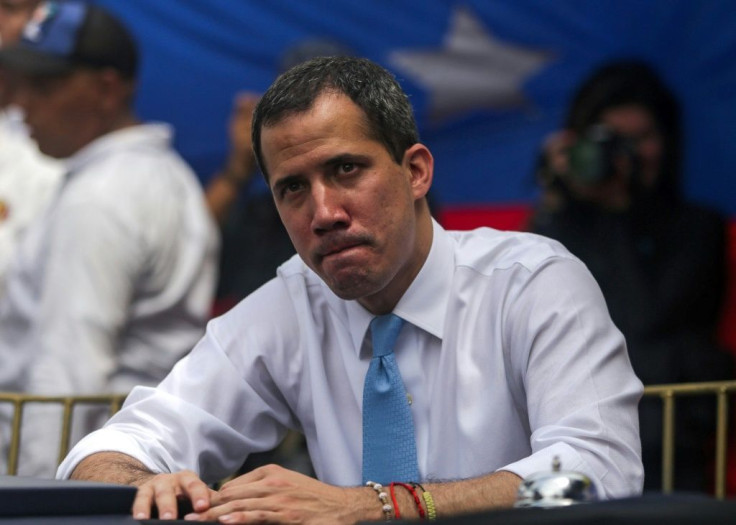Venezuela Prosecutor's Office Summoned Guaido For 'Attempted Coup'

State prosecutors in Venezuela have summoned opposition leader Juan Guaido for an alleged "attempted coup d'etat" and attempted assassination, Attorney General Tarek William Saab announced Tuesday.
In a statement broadcast on state television, Saab said Guaido had been summoned to appear before prosecutors next Thursday following an investigation last week into the seizure of a weapons cache in neighboring Colombia that he said was to be smuggled into Venezuela.
The subpoena was delivered to his head of security on Monday night, Saab said.
The opposition leader is recognized as interim president by more than 50 countries, including the United States, that refuse to recognize socialist President Nicolas Maduro after his disputed 2018 re-election.
Colombian forces last week seized a cache of weapons linked to a retired Venezuelan general wanted on drug trafficking charges in the United States. The shaven-headed general, Cliver Alcala, surrendered in Colombia and was handed over to US authorities last week.
Alcala claimed ownership of the weapons discovered by police in Puerto Viejo in Colombia's Magdalena department on March 23. He said in social media messages the intention was to deliver them to Venezuela to "begin the liberation."
In his announcement Tuesday, Saab said Alacala -- who was once close to late president Hugo Chavez but retired when Maduro took power in 2013 -- had been operating under "direct instructions from Mr Juan Guaido."
Guaido has been repeatedly targeted by the government in a number of legal cases but never arrested, amid warnings by the United States that it would be Maduro's "last mistake."
Guaido called on Sunday for the formation of an emergency coalition government that would be able to convince multilateral agencies to provide badly needed funding for its crumbling health system to fight the coronavirus pandemic.
The International Monetary Fund last week rejected Maduro's request for a $5 billion loan, on the grounds that there was "no clarity" on international recognition of his government.
© Copyright AFP {{Year}}. All rights reserved.





















